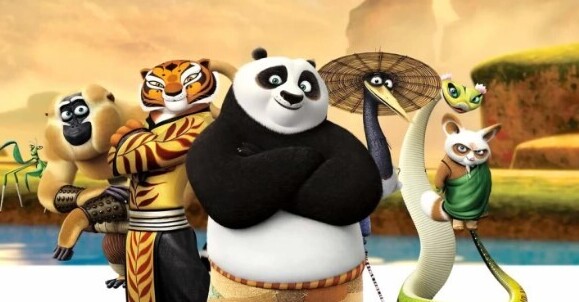
What do kung fu, a wise red panda, and a steaming cup of green tea have in common? More than you might think.
Tea is more than a beverage in Chinese culture—it’s an art form, a philosophy, and a symbol of balance, mindfulness, and wisdom. For centuries, tea has been deeply intertwined with spiritual practices, intellectual pursuits, and martial arts traditions.
From emperors to monks, tea has played a vital role in Chinese life, making its presence in Kung Fu Panda both meaningful and authentic.
And what better way to explore green tea’s significance than through the wisdom of a red panda? Master Shifu, the stern yet wise kung fu master, appreciates tea not just as a drink but as a practice rooted in focus and clarity.
His tea-drinking moments aren’t just for show—they subtly reflect real Chinese tea culture and its deep connection to martial arts philosophy.
A Quick Intro to Kung Fu Panda
Kung Fu Panda follows Po, a clumsy, noodle-loving panda who must master kung fu under Master Shifu’s guidance. At first, Po struggles to meet traditional expectations, but he soon learns that his unique strengths are his greatest assets.
The film beautifully blends humor, action, and Chinese culture, drawing inspiration from real-life temples, misty mountains, and kung fu philosophies.
It also highlights the contrast between discipline and chaos—something embodied in Shifu’s character as he tries to train Po. And, of course, tea plays a quiet yet meaningful role, especially for Master Shifu.
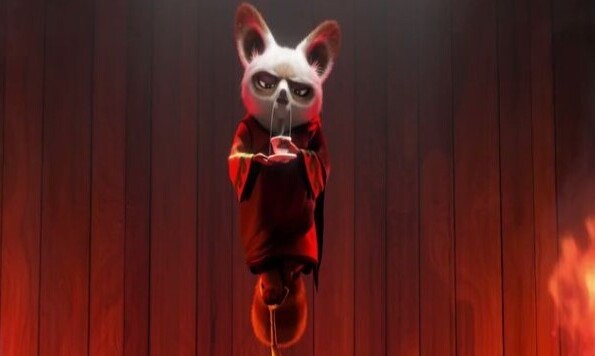
Green Tea and Kung Fu—A Surprising Connection
At first glance, green tea and kung fu seem unrelated, but they share core principles: discipline, patience, and the ability to find calm in chaos.
Historically, monks and martial artists have used tea to aid meditation, enhance focus, and maintain clarity.
The act of brewing and drinking tea is itself a form of mindfulness—a state of being present and intentional, just as kung fu requires.
Kung fu isn’t just about combat; it’s about harmony and self-mastery. Similarly, tea is more than quenching thirst—it’s a mindful practice that requires patience and appreciation of the present moment.
As Master Shifu wisely says, “Before the battle of the fist comes the battle of the mind.” This idea is beautifully reflected in his tea-drinking rituals, which serve as a metaphor for the wisdom and inner peace that great warriors strive for.
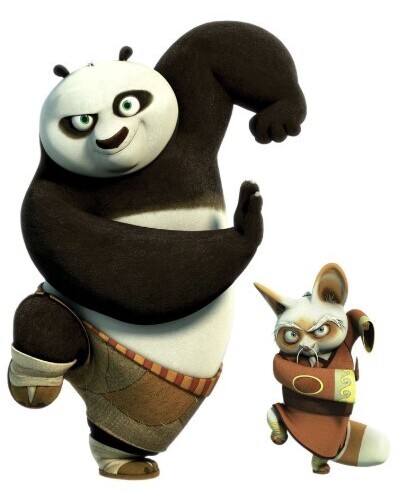
Master Shifu’s Relationship with Green Tea
Master Shifu’s tea-drinking is a ritual of focus and clarity, much like the traditions practiced by monks and warriors for centuries.
In a world of high-energy kung fu battles, his tea moments provide a striking contrast. The careful pouring, rising steam, and deliberate pace mirror real Chinese tea ceremonies, reinforcing themes of balance and control.
Shifu’s tea scenes reflect:
🍵 Mindfulness – Taking time to enjoy green tea means being present in the moment. The act of brewing, pouring, and sipping tea is a meditative process that has been practiced for centuries.
🍵 Balance – Kung fu isn’t just about fighting; it’s about harmony, both within oneself and with the world. Green tea, with its ability to both relax and energize, embodies this balance perfectly.
🍵 Restraint – Shifu tries to remain composed despite Po’s antics. Tea helps… until it doesn’t. He uses it as a tool to center himself, even when his patience is tested beyond human (or red panda) limits.
As he puts it, “I’m not dying, you idiot! Uh…Dragon Warrior. I am simply at peace.”
In Chinese tradition, tea is often associated with wisdom, patience, and self-discipline—qualities that define Shifu’s character. The serene moments he spends with tea act as a counterpoint to the chaos of training Po, who is far more interested in dumplings than discipline.
Of course, serenity is short-lived when Po bursts in, disrupting Shifu’s peace. But that’s the beauty of it—tea represents patience, something Shifu constantly struggles to maintain while training Po, who treats kung fu like an all-you-can-eat buffet.
As Shifu says, “If you only do what you can do, you’ll never be better than what you are.” His tea-drinking reflects his quest for calm and self-mastery, even in the face of frustration.
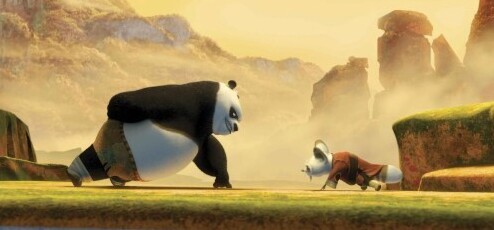
Did Kung Fu Panda Get Tea Culture Right?
Surprisingly, yes! While not a focal point, Shifu’s tea-drinking nods to the deep-rooted connection between kung fu and tea. Historically, monks and martial artists have used tea to stay alert yet calm—a balance crucial for both battle and inner peace.
Even Po has his own tea moment—though in true Po fashion, it’s chaotic. In Kung Fu Panda 3, when he reconnects with his biological father, Li Shan, he eagerly takes a sip of green tea—only to burn his mouth in the process.
It’s a small but telling moment, reinforcing the idea that patience and mindfulness (two things Po struggles with) are key to truly appreciating tea, just as they are in kung fu.
This subtle detail adds authenticity to the film, showing that even in a humorous and action-packed story, traditional elements like tea culture can play a meaningful role.
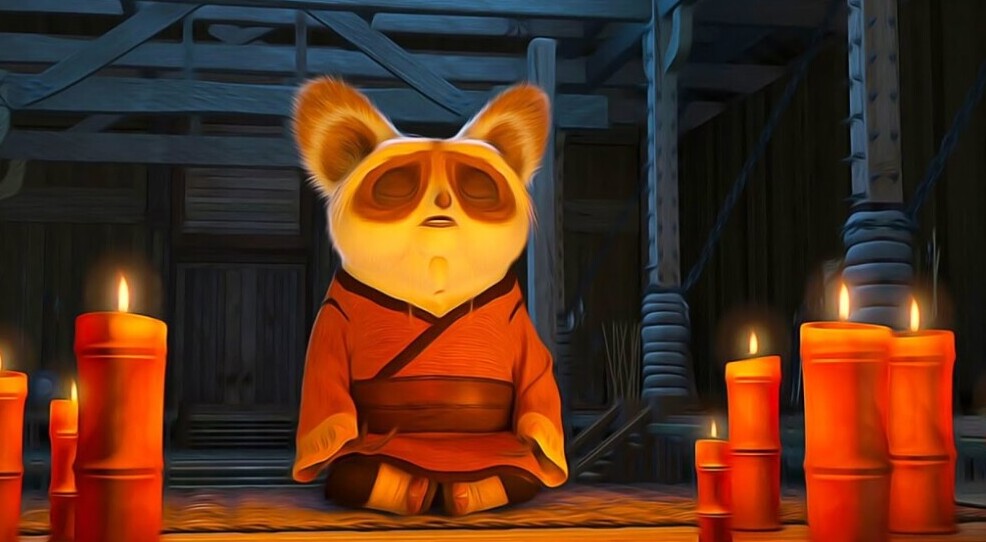
What Kind of Green Tea Would Master Shifu Drink?
If I had to guess, Shifu’s tea of choice would probably be Longjing (Dragon Well) tea—a classic green tea known for its smooth, slightly nutty flavor and energy-boosting properties.
It’s one of China’s most famous and respected teas, often associated with scholars, monks, and, of course, kung fu masters.
Why Longjing? It’s not just a delicious tea; it’s also a symbol of refinement, discipline, and focus. The leaves are pan-fired by hand, requiring a careful and practiced technique—much like kung fu itself.
So, it makes sense that Shifu, who embodies discipline and mastery, would favor a tea that reflects those values.
Would Po drink it? Probably not. He’d be too busy dunking cookies in it or mistaking it for soup. Po is more of a “whatever-is-served-with-a-side-of-dumplings” kind of guy.
But who knows? Maybe after some training, he’d develop a taste for the good stuff.
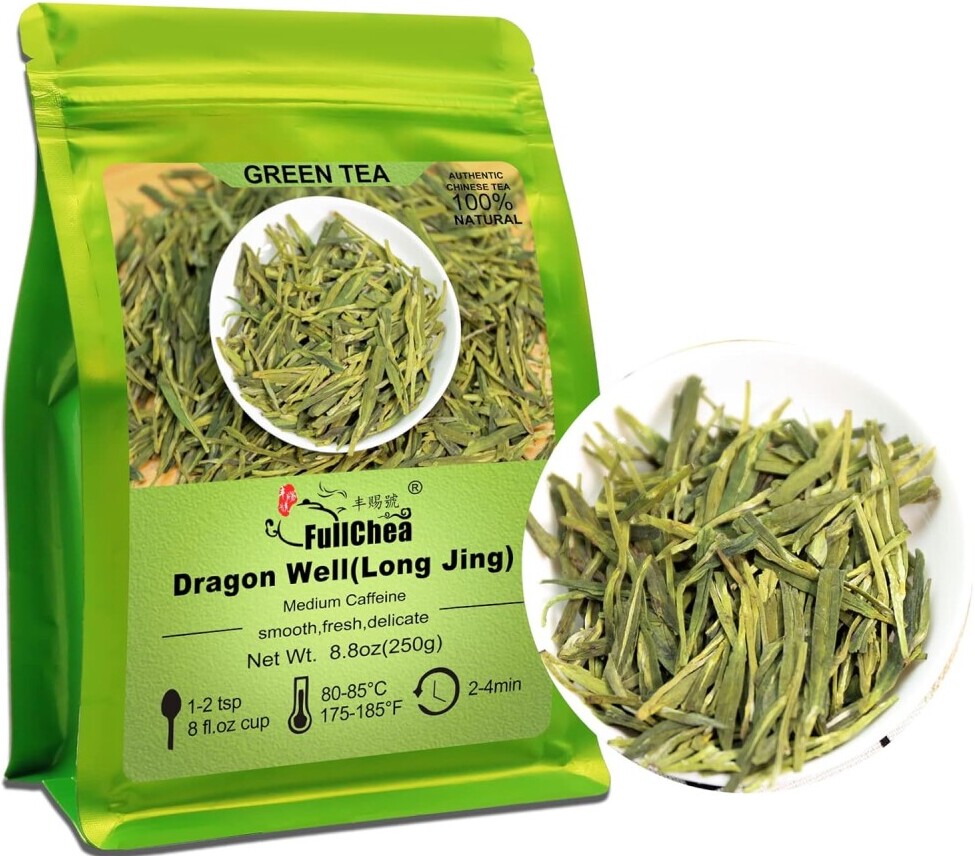
Real-World Influence of Green Tea: From Fiction to Tradition
The magic of Kung Fu Panda doesn’t just entertain—it subtly encourages audiences to appreciate green tea, creating ripples beyond the screen.
By seamlessly weaving tea into its storytelling, the film highlights its role in promoting wellness, patience, and balance. For younger audiences who might otherwise overlook tea’s charm, Kung Fu Panda refreshes its image—making it something both cool and wise.
Inspired by the film, many might find themselves adopting small tea rituals—whether it’s starting the day with a quiet sip or pausing in the afternoon for a mindful moment. These simple habits can bring calm and focus to even the busiest of lives.
In the end, Kung Fu Panda reminds us that tradition often holds the keys to modern challenges. Maybe embracing the quiet strength of green tea is exactly what’s needed to navigate life’s adventures with a little more wisdom and peace.
The Final Sip: What We Can Learn from Shifu’s Tea Rituals
Master Shifu’s tea rituals offer more than just a calming visual in the movie—they serve as a reminder of the patience, discipline, and mindfulness that both kung fu and tea culture emphasize. If there’s anything we can take away from his wisdom, it’s this:
🍵 Patience is key – If Shifu can train Po, you can handle your own challenges with grace (or at least with a good cup of green tea in hand).
🍵 Take time to slow down – In the rush of daily life, sometimes the best thing you can do is pause, reflect, and enjoy the moment.
🍵 Find balance – Whether in kung fu, work, or life, the key to success lies in harmony—between effort and relaxation, strength and softness, action and reflection.
🍵 Embrace the chaos – Life is messy. Sometimes, we’re Shifu. Other times, we’re Po. Either way, a cup of green tea can help us roll with it.
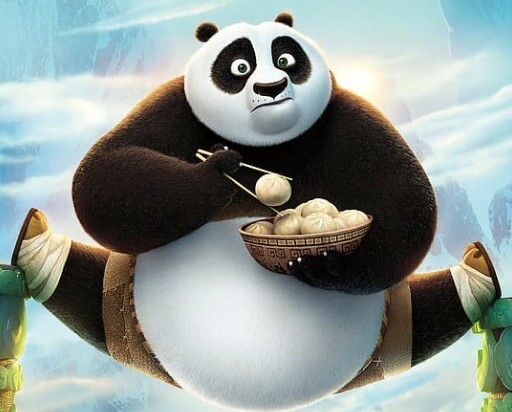
As Po himself discovered, “Your real strength comes from being the best ‘you’ you can be.” Whether you’re striving for wisdom like Shifu or simply navigating life one step at a time like Po, tea can be a powerful companion on your journey.
So the next time you pour yourself a cup of green tea, take a deep breath, savor the moment, and channel your inner Master Shifu. Because in the end, mastery—whether in kung fu or in life—isn’t about perfection. It’s about patience, practice, and knowing when to sit back, sip, and enjoy the journey.
What’s Your Green Tea Personality?
Are you a Shifu-style tea drinker (calm, collected, sophisticated) or a Po-style tea drinker (chaotic, snack-loving, always spilling)? Let me in the comments!
